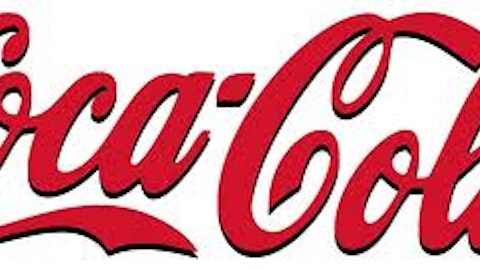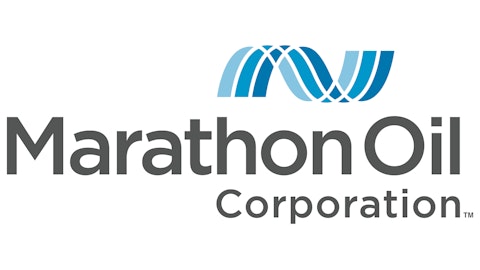
Largely as a result of this state, prices for crude oil extracted from these locations have been severely depressed. Until very recently, Bakken crude traded at a substantial discount to the main domestic crude benchmark, West Texas Intermediate (WTI), while crude produced from Canada’s oil sands continues to trade at a nearly $30 discount to WTI.
But energy companies are highly resourceful. Spotting the tremendous opportunity in these wide price disparities, they’ve increasingly turned toward other methods of transporting crude oil. Even legendary investor Warren Buffett is cashing in on this trend.
Let’s take a look at how some of these alternative transport options are quickly displacing pipelines as the main source of outbound capacity from key North American resource plays.
Buffett rides the rails to profits
Over the past year or so, one of the most intriguing developments in the energy space with regard to oil and gas transportation has been the accelerated use of railcars and barges. Warren Buffett is one of the more famous investors to have reaped the rewards from this trend, through his purchase of Burlington Northern Santa Fe Corp., one of the largest railroad companies in the U.S.
When he bought Burlington Northern back in 2009, he said the investment was a bet on the future of the the railroad industry and the company itself, but also a bet on the future direction of the U.S. economy. Given the rapid rise in the importance of rail transport in shipping crude oil, it turned out to be a great decision. Of the nearly 750,000 barrels per day of crude oil produced in the Bakken in October last year, an estimated 52% was transported via rail, as compared to 38% through pipelines.
Railroads displacing pipelines in Bakken
As the biggest rail-car shipper in the Bakken, Burlington Northern continues to enjoy high demand for crude oil shipments, which more than offset declines in coal shipment volumes. By the end of this year, the company expects to increase crude oil shipments by some 40% to 700,000 barrels per day. Burlington’s outlook highlights the fact that rail transport has quickly gained competitiveness against pipelines.
While shipment costs for rail tend to be higher, it offers greater flexibility and can transport oil to distant markets that are inaccessible via pipeline. Railcars have become so popular in the Bakken, in fact, that they are now giving Enbridge Inc (USA) (NYSE:ENB)‘s North Dakota pipeline system a run for its money.
In recent months, Enbridge’s pipeline system, which can move some 210,000 barrels a day from Minot, N.D., to Clearbrook, Minn., has been losing volumes to railcars. According to a company spokesman, Enbridge Inc (USA) (NYSE:ENB) is “seeing reduced volumes on our North Dakota system as some producers seek alternate transportation options to take advantage of favorable oil pricing in other markets.”
Canadian crude finds its way to U.S. refineries via rail and barge
Another major North American oil production center that is also being serviced by railroad shipments is Alberta’s oil sands. Growing volumes of bituminous coal are seeing high demand from U.S. refiners, who are seeking to capitalize on the massive price disparity between Canadian crude and American inland crude.
Currently, heavier Canadian crudes such as Western Canada Select trade at a nearly $30 discount to WTI, providing a lucrative arbitrage opportunity for refiners that can gain access. For instance, Marathon Petroleum Corp (NYSE:MPC) recently expanded its Detroit refinery’s capacity by 13%, in order to process greater quantities of Canadian crude.
Tesoro Corporation (NYSE:TSO) is also looking for ways to get more Canadian crude delivered to its refineries in California. The company’s Los Angeles refinery, which is operating at a capacity of 97,000 barrels per day, is especially well-suited to process heavier crudes, such as those from Alberta’s oil sands. The company is currently looking into shipping oil from Canada to the U.S. Pacific Northwest using barges, and then shipping it via rail to its California refineries.
Phillips 66 (NYSE:PSX) also recently started to use rail transport to move Canadian crude to its refineries in California. The company is no stranger to using rail, having already purchased some 2,000 general purpose railcars to transport domestic oil to its refineries.
Even Gulf Coast players are making use of rail, despite the flurry of pipelines that will soon bring a flood of cheap domestic light oil to their refineries’ doors. For instance, Valero Energy Corporation (NYSE:VLO) is planning on making greater use of rail and barge transport to move Canadian crude to its Gulf Coast refineries. The company expects to ship more Canadian oil via barge to its refinery in St. Charles, La.
And it’s not just refiners who are investing heavily in rail transport for shipping crude oil. Midstream companies see opportunity, as well. For instance, Plains All American Pipeline, L.P. (NYSE:PAA), one of the largest pipeline operators in the country, is currently finishing up a rail terminal in Virginia that’s expected to receive up to 160,000 barrels per day of Bakken crude by the second half of this year.
Final thoughts
While rail transport is likely to remain in high demand in the nearer term, major new pipelines will eventually be built to link Alberta oil sands and Bakken production to refining centers in the U.S. One of the largest and most controversial of these projects is the proposed Keystone XL pipeline.
Operated by TransCanada Corporation (USA) (NYSE:TRP), Keystone would transport crude from Canada’s oil sands to Steele City, Neb., from where it could be moved to refineries along the U.S. Gulf Coast. With a projected capacity of 830,000 barrels per day, Keystone XL would be a game changer if completed, though it has faced significant opposition from environmentalists and climate change campaigners.
However, that could soon change, thanks to the recently released results of a study conducted by the U.S. State Department that assessed Keystone’s environmental and economic impact, among other considerations. The study concluded that the pipeline’s environmental impact would not be as bad as several environmental groups claim and that its construction would have just a marginal impact on greenhouse gas emissions.
The article Buffett Wins Big From Railroad Crude Shipments originally appeared on Fool.com and is written by Arjun Sreekumar.
Fool contributor Arjun Sreekumar has no position in any stocks mentioned. The Motley Fool has no position in any of the stocks mentioned.
Copyright © 1995 – 2013 The Motley Fool, LLC. All rights reserved. The Motley Fool has a disclosure policy.




